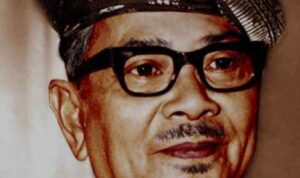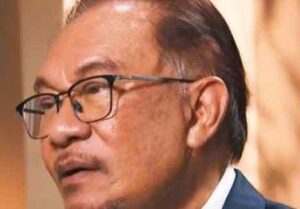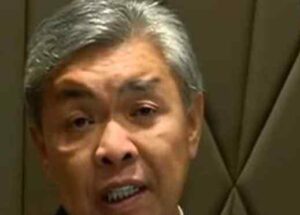Malaysia’s history is deeply influenced by its leaders, each contributing to the nation’s development in various ways. Here’s a look at the presidents of Malaysia, listed in order of their tenure, along with details about the first president, the current president, and the current vice president.
We’ll explore their backgrounds, previous roles, and significant achievements and challenges during their time in office
| No. | President | Years of Tenure |
|---|---|---|
| 1 | Tunku Abdul Rahman | 1957 - 1970 |
| 2 | Tun Abdul Razak | 1970 - 1976 |
| 3 | Tun Hussein Onn | 1976 - 1981 |
| 4 | Tun Dr. Mahathir Mohamad | 1981 - 2003 |
| 5 | Tun Abdullah Ahmad Badawi | 2003 - 2009 |
| 6 | Dato' Seri Najib Tun Razak | 2009 - 2018 |
| 7 | Tun Dr. Mahathir Mohamad | 2018 - 2020 |
| 8 | Tan Sri Muhyiddin Yassin | 2020 - 2021 |
| 9 | Ismail Sabri Yaakob | 2021 - 2022 |
| 10 | Anwar Ibrahim | 2022 - Present |
Tunku Abdul Rahman: Malaysia’s First Prime Minister

Tunku Abdul Rahman, often called the “Father of Independence,” was born on February 8, 1903, in Alor Setar, Kedah. He was from a royal family, being the son of the Sultan of Kedah.
Before becoming Malaysia’s first Prime Minister, Tunku Abdul Rahman was an active member of the United Malays National Organization (UMNO) and served as the Chief Minister of the Federation of Malaya.
Key Achievements:
Tunku Abdul Rahman led Malaya to independence from British rule in 1957 and later played a key role in forming Malaysia in 1963 by uniting Malaya, Sabah, Sarawak, and Singapore (until 1965).
He also worked towards racial harmony and was involved in establishing the Organization of Islamic Cooperation (OIC).
Challenges:
Despite his successes, Tunku faced difficulties in managing ethnic tensions, which led to racial riots in 1969. His handling of these issues was criticized, leading to his resignation in 1970.
Anwar Ibrahim: Malaysia’s Current Prime Minister

Anwar Ibrahim was born on August 10, 1947, in Penang. He is a well-known figure in Malaysian politics, recognized for his advocacy for reform and social justice.
Anwar has held various significant positions, including Deputy Prime Minister from 1993 to 1998 and Minister of Finance. He has also served as the Leader of the Opposition and is the founder of the People’s Justice Party (PKR).
Key Achievements:
Although still early in his presidency, Anwar Ibrahim is focused on reforming Malaysia’s political landscape, promoting anti-corruption efforts, and driving economic growth. He is also known for his efforts to unite Malaysia’s diverse population.
Challenges:
Anwar’s political journey has been tumultuous, with several legal battles and imprisonment on charges that many believe were politically motivated. His leadership is also being tested by Malaysia’s economic challenges and the need for political stability.
READ ALSO: Presidents That Have Ruled Syria Till Date
Dr. Ahmad Zahid Hamidi: Malaysia’s Deputy Prime Minister

Dr. Ahmad Zahid Hamidi was born on January 4, 1953, in Perak. He has been an influential figure in Malaysian politics, particularly within the United Malays National Organization (UMNO).
Zahid Hamidi has served in various high-profile roles, including Deputy Prime Minister, Minister of Home Affairs, and Minister of Defense, making him a seasoned politician.
Key Achievements:
As Vice President, Zahid has been instrumental in enhancing Malaysia’s national security and international relations. His tenure as Minister of Home Affairs was marked by significant efforts to combat terrorism and organized crime.
Challenges:
Zahid Hamidi’s career has been overshadowed by allegations of corruption and financial misconduct, leading to multiple charges against him. These controversies have raised questions about his leadership and integrity.
Conclusion
Malaysia’s history of leadership is rich with stories of progress and challenges. From Tunku Abdul Rahman’s efforts in achieving independence to Anwar Ibrahim’s ongoing reforms, each president has left a distinct mark on the nation’s journey.
The current leadership under Anwar Ibrahim and Zahid Hamidi continues to address Malaysia’s modern challenges, aiming to create a more prosperous and unified country for the future.
